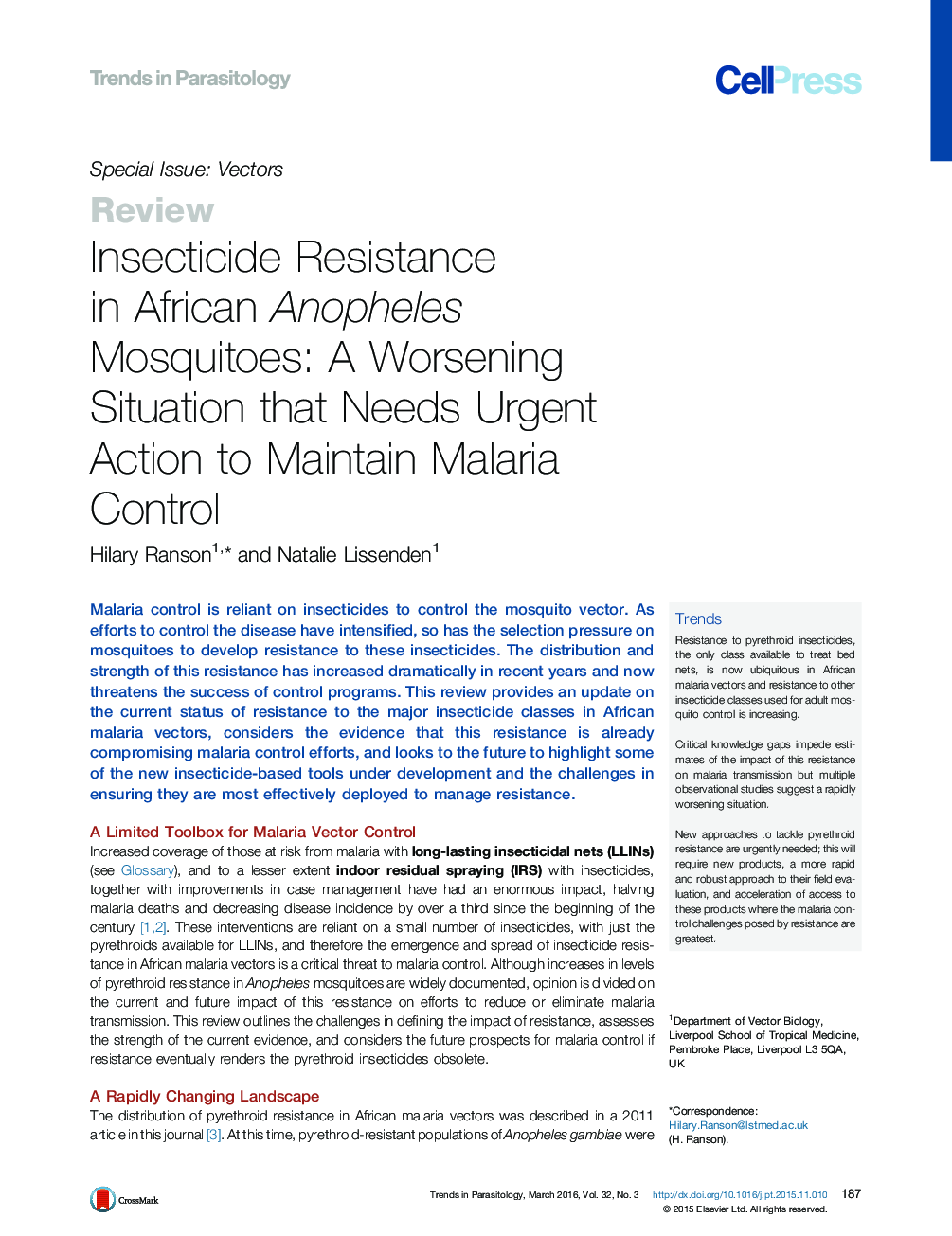| Article ID | Journal | Published Year | Pages | File Type |
|---|---|---|---|---|
| 3422976 | Trends in Parasitology | 2016 | 10 Pages |
Malaria control is reliant on insecticides to control the mosquito vector. As efforts to control the disease have intensified, so has the selection pressure on mosquitoes to develop resistance to these insecticides. The distribution and strength of this resistance has increased dramatically in recent years and now threatens the success of control programs. This review provides an update on the current status of resistance to the major insecticide classes in African malaria vectors, considers the evidence that this resistance is already compromising malaria control efforts, and looks to the future to highlight some of the new insecticide-based tools under development and the challenges in ensuring they are most effectively deployed to manage resistance.
TrendsResistance to pyrethroid insecticides, the only class available to treat bed nets, is now ubiquitous in African malaria vectors and resistance to other insecticide classes used for adult mosquito control is increasing.Critical knowledge gaps impede estimates of the impact of this resistance on malaria transmission but multiple observational studies suggest a rapidly worsening situation.New approaches to tackle pyrethroid resistance are urgently needed; this will require new products, a more rapid and robust approach to their field evaluation, and acceleration of access to these products where the malaria control challenges posed by resistance are greatest.
